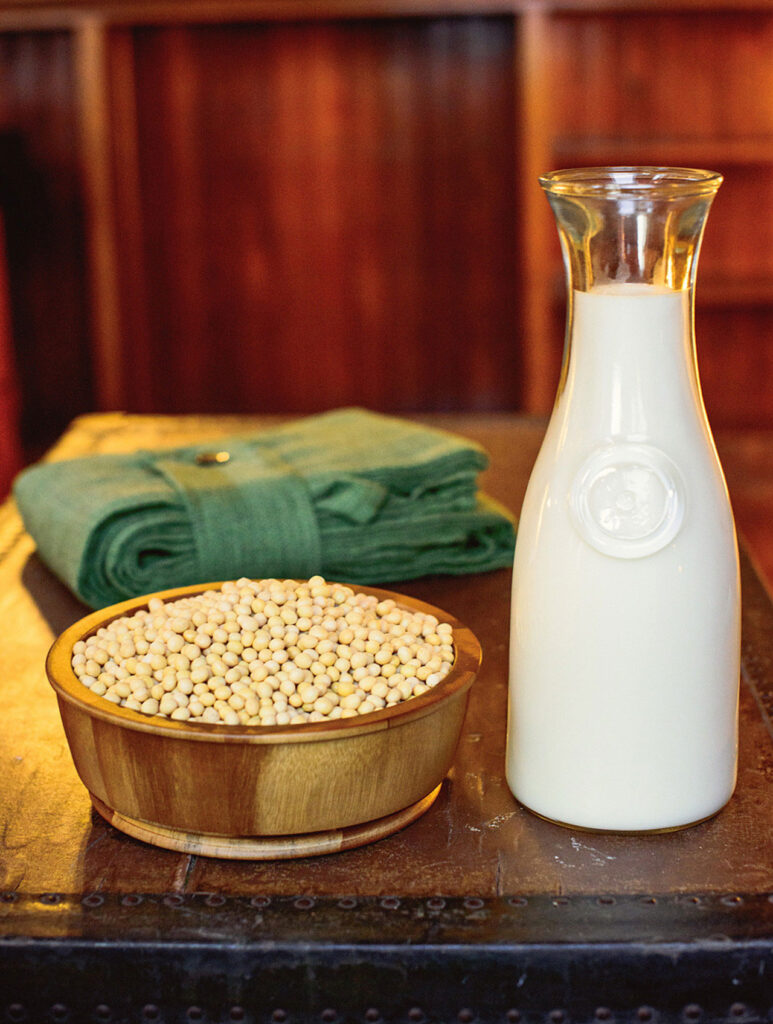- Free Shipping On Orders Over $50
- (515) 583-2198
- sales@laurasoybeans.com
Menu
First-time customers take 10% off your order with coupon code “FIRSTLAURA”. Note: Coupon and free shipping cannot be used at the same time.
First-time customers take 10% off your order with coupon code “FIRSTLAURA”. Note: Coupon and free shipping cannot be used at the same time.

Consumers are smart, especially when it comes to selecting food to feed themselves and their families. These days, many people want to make better choices about their food choices.
Recently, this includes more people introducing – and sticking to – products that are derived from non-GMO sources. In the U.S., 44 percent of adults surveyed by Pew Research Center from May 10 to June 6, 2018, said they had purchased non-GMO food products within the past 30 days.
Plus, of the Americans who said they care about GMOs, 89% said they have made a food purchase decision based on nutrition and other package labeling. These people, like Laura® Soybeans customers, not only care about where their food comes from, they also care about whether or not it is healthy or safe to consume.
Let’s breakdown exactly why choosing non-GMO foods is the way to go.
A GMO is a genetically modified organism. It’s a living organism, plant or animal, that has had its genetic material artificially manipulated through the use of genetic engineering. This process results in the creation of genes that do not occur naturally or through crossbreeding methods.
Ultimately, there is also not a whole lot of credible, independent and long-term feeding studies that can confirm whether or not GMOs are safe for people to consume.
Many GMOs have been created and engineered to withstand herbicide application or to produce an insecticide that repels pests. As the Non-GMO Project notes, though, new GMOs are being introduced in specific plants, such as browning-resistant apples.
The biotech industry makes claims that some GMOs offer increased crop yield, tolerance to drought, more nutritious crops and any other handful of boastful claims. The problem is, though, there’s actually no evidence that backs up these claims, the Non-GMO Project shares.
If the food is packaged and has ingredients from corn, soy, canola and sugar beet, then it could contain GMOs.
As for animal products, the Non-GMO Project considers livestock, apiculture and aquaculture products to be at high risk for having come into contact with GMOs because genetically modified organisms are common in animal feed.
Research exists that shows the genetic modification process can create or increase allergens, toxins and anti-nutrients, according to an article in Shape that cites that research. As the article notes, soybeans that are genetically modified were found through this research to have up to seven times the amount of a natural soy allergen and double the normal amount of soy lectin. This could block the body from absorbing the nutrients.
Finally, GMOs, in many cases, are designed to allow crops to withstand herbicide application. The World Health Organization considers herbicide “probably carcinogenic,” which should be some cause for concern to consumers of any food or ingredient that is not non-GMO.
When people focus on eating non-GMO foods, they really are doing their bodies a favor. Non-GMO foods claim many benefits that foods that do contain GMOs cannot.
For example, non-GMO foods are a major component of clean diets. They are denser in nutrients, have not encountered pesticides, do not contain antibiotics and growing non-GMO foods has less of an impact on the environment, including human and animal health.
Think about it: if you could feed yourself and your family food that has not come into contact with toxic chemicals, antibiotics and growth hormones. Focusing on eating only non-GMO foods means you also will be consuming fresher, more nutritious ingredients in your meals.
So, now that we have covered some of the GMO and non-GMO basics, here are some tips on how to incorporate more non-GMO foods into your diet – or, even better, go completely non-GMO.
Laura® Soybeans is proud of our non-GMO status – and we do everything possible to protect the integrity of our products. We have established the Laura® brand as one of quality and reliability. We know our customers are counting on us to maintain these standards.
At Laura®, we are committed to the non-GMO label because it truly represents our core belief in producing a high-quality crop of soybeans that you can trust, knowing that every order comes directly from our farm and ends up on your table at home.
A lot of work goes into producing non-GMO soybean crops. However, all that work is completely worth the effort. But here is a review at some of the labor involved to send our soybeans your way.
There is no better time than now to stock up on Laura® Soybeans. Our best-tasting beans are 100% natural protein, vegan-endorsed and can be used to make your very own, great-tasting soymilk at home.
While you’re at it, check out our natto soybeans and tosteds for even more options.
Get the latest updates on new products and upcoming sales
© Copyright Laura® Soybeans …. All Rights Reserved. | Web Design and Development by Saltech Systems